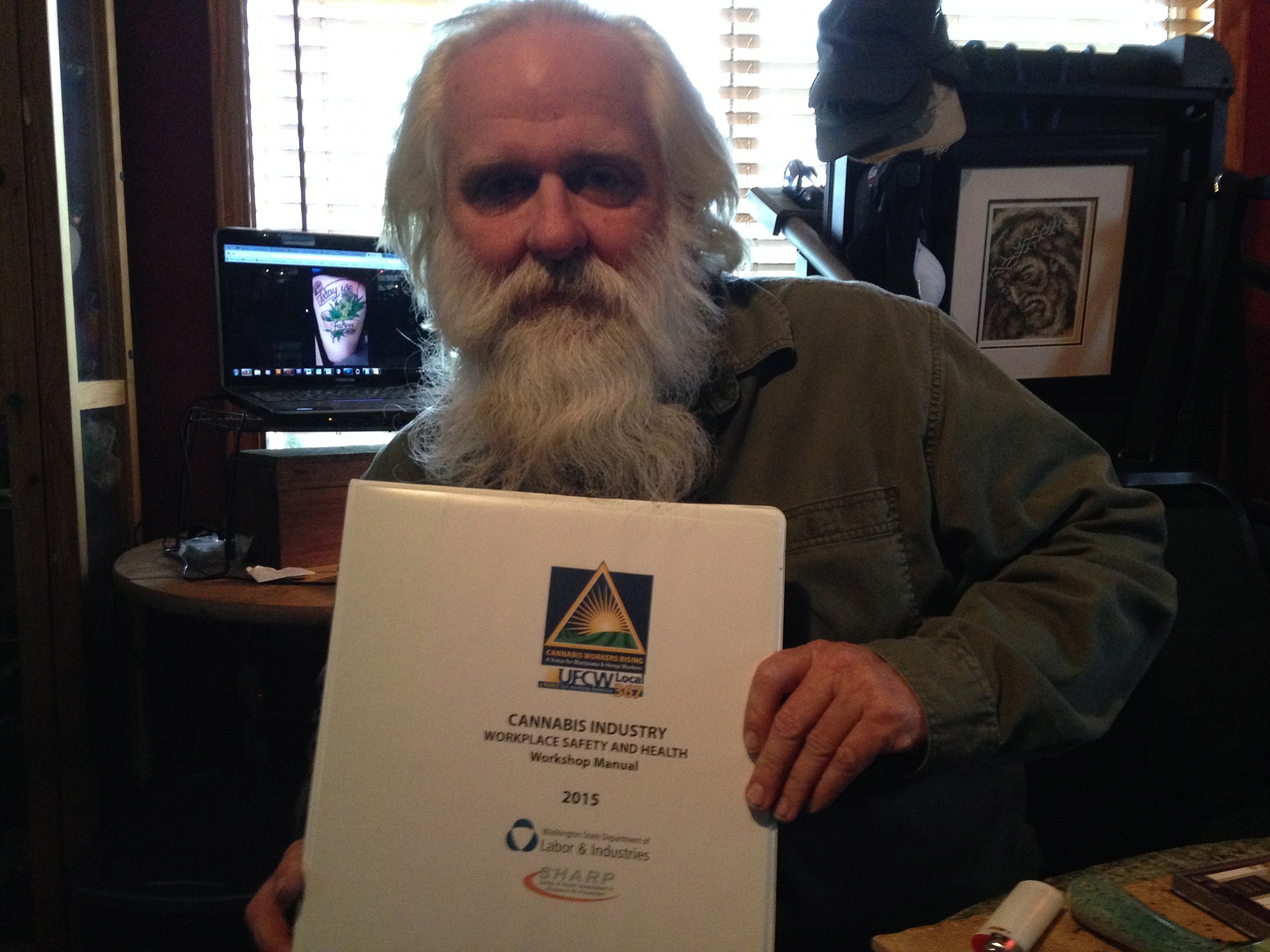With just about six weeks left to the one-year anniversary of recreational cannabis in Washington, a new sign of the normalization of that industry has appeared.
Under the leadership of the labor union United Food and Commercial Workers Local 367, a group of industry experts are developing the first “Cannabis Industry Workplace Safety and Health” manual for the Washington State Department of Labor and Industries.
Tom Lauerman, a medical marijuana farmer in Vancouver, is part of the group writing the materials. With more than 20 years as a grower here and in California, Lauerman said he thinks it’s a great sign that the industry is maturing.
“If a state agency is coming to the cannabis community and asking us as an industry to do this, I think it’s a great sign that we’re becoming a legitimate industry in its eyes,” Lauerman said. “This is the first one of these that anybody has done, and it will be a model for all the other states, not just Washington.”
As new growers, processors and retailers begin operating under I-502, the legislation that legalized recreational marijuana in the state, the need for safety standards has grown increasingly important, which is why the union decided to help build the new manual, said Nathe Lawver, communications director for UFCW local 367, which includes members of the cannabis industry.
“As the industry is legitimized, safety plans are things that different shops and production facilities need,” Lawver said. “With Farmer Tom (Lauerman) and others, we’re going through with experts to review all of these procedures.”
But while the industry is new, the safety procedures in the manual are things you might see in many other business sectors, he added.
“In the cannabis industry, you have things like repetitive motion issues, when you’re doing things like trimming buds,” Lawver said. “There are also some (ergonomic) issues of how you sit or stand, how you operate machinery, how to protect your respiratory system. I can’t say it’s unique, it’s standard stuff, it’s just new for this industry.”
Several years ago, Lauerman worked at a California company called Pacific Candles. In that role, he handled safety issues and helped his company meet OSHA regulations, he said.
Helping to write the manual is a natural step for him, and one he’s looking forward to, he said.
“We’re going to get to write the book, and it’s super exciting,” Lauerman said. “It’s really an honor to be part of these commissions.”
The union will continue to build the manual and hold workshops about the content through October. So far, the first section is finished and the first workshop has been held, Lawver said.
The group will hold seven more workshops in the coming months, he added.
The document is not an “official state document,” which would have to be approved by the legislature, but it is under development in partnership with the Washington State Department of Labor and Industries and that department’s Safety and Health Assessment and Research for Prevention (SHARP) program, Lawver said.
Some other issues that Lauerman wants to address include concerns over slipping, improperly placed ladders, hoisting and table height, he said.
Other issues include determining requirements for personal protective equipment and mechanical safety, Lawver said.
“It’s a new industry and it’s really exciting,” Lawver said. “As a union, this will make it safer for both employees and employers.”



